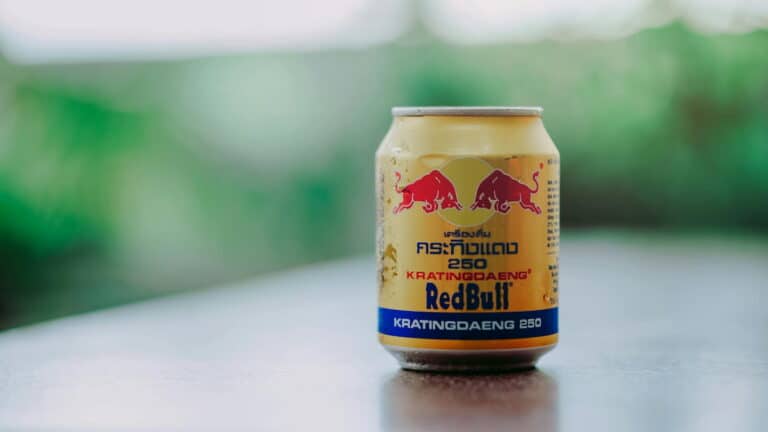
Today’s fast-paced world often demands high energy levels. Some people reach for readily available energy drinks. These highly caffeinated beverages are marketed as a quick fix for fatigue, making them appealing to people of all ages.
While they may provide a temporary energy surge, we often overlook their potential for dependency and their health risks. This blog will explore the signs of energy drink addiction and strategies for prevention.
The addiction to energy drinks often comes with their stimulating properties. Energy drinks have a high concentration of sugar, caffeine, and stimulants like taurine and guarana, which can create a powerful and addictive combination.
The regular consumption of these substances can lead to tolerance—you end up needing more of the drink to achieve the desired effects. Over time, your body becomes reliant on the energy drink to function normally, resulting in withdrawal symptoms when you try to quit.
Physical and psychological indicators manifest when you get addicted to energy drinks. Recognizing these signs can help in early intervention and prevention.
Physical signs include the following:
Beyond physical signs, you may also experience psychological signs of addiction.
Being addicted to energy drinks can lead to immediate and long-term effects, affecting various aspects of your physical and mental health. Immediate symptoms include the following:
Beyond the physical health issues, energy drink addiction can also hurt your overall well-being.
Breaking free from your energy drink dependence requires addressing physical and psychological factors. Various treatment options can help you regain control of your health and well-being.
You can develop healthy coping mechanisms, reduce cravings, and build resilience through therapy. Cognitive–behavioral therapy can help identify and modify thought patterns and behaviors linked to your energy drink dependency
Individual and group therapy sessions also provide a supportive environment for exploring your energy drink dependency. In individual therapy, you can work one-on-one with a counselor to address personal challenges. Group therapy allows for the sharing of experiences and gaining insights from others facing energy drink dependency and similar struggles.
While energy drinks might not be considered a traditional drug, the high levels of caffeine and other stimulants can create a dependence. Detox therapy can help your body gradually adjust to lower levels of these substances.
The detox process involves gradually eliminating energy drinks from the diet, allowing the body to adjust and flush out toxins. This process can help alleviate withdrawal symptoms such as headaches, irritability, and fatigue, which often accompany the cessation of caffeine and other stimulants.
Edge Weight Loss & Fatigue offers detox therapy programs to help you overcome energy drink dependency. These programs provide guidance and support throughout the detoxification process.
Proper nutrition can help improve energy levels and support overall well-being. Edge Weight Loss & Fatigue also offers nutrient therapy tailored to help you recover from energy drink dependency. We can develop personalized nutrition plans to meet your specific needs.
Some nutrients that can help in your recovery include the following:
Adopting healthier lifestyle habits can significantly support you in long-term recovery from energy drink dependency. Consider the following lifestyle changes to aid in your recovery:
While overcoming energy drink addiction can be challenging, many natural alternatives can provide a healthier energy boost without the risks associated with excessive caffeine and sugar consumption. These alternatives can help you break free from energy drink dependency while maintaining sustainable energy levels throughout the day.
 Herbal Teas: Green tea, black tea, chamomile, and other herbal teas contain natural caffeine and antioxidants to enhance alertness and focus. These beverages offer a milder and more gradual energy boost than energy drinks.
Herbal Teas: Green tea, black tea, chamomile, and other herbal teas contain natural caffeine and antioxidants to enhance alertness and focus. These beverages offer a milder and more gradual energy boost than energy drinks. Energy drinks, while marketed as a quick energy fix, can lead to a dangerous cycle of addiction. Preventing energy drink addiction starts with recognizing its dangers and seeking appropriate help.
Educate yourself, limit your intake, and look for healthier energy drink alternatives. Edge Weight Loss & Fatigue can help with detox programs and nutrient therapy to fight energy drink dependency. Get personalized support and start your journey towards a healthier, more energetic lifestyle.
Contact us today to get started!